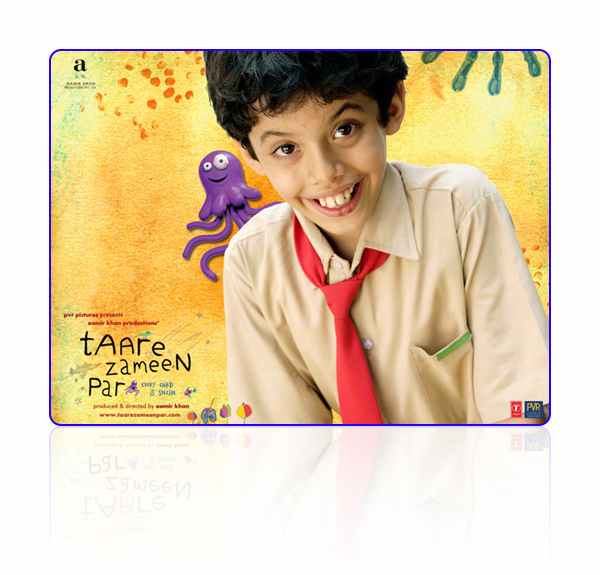Article by By BRENT BOWERS Published: December 6, 2007 NY Times
It has long been known that dyslexics are drawn to running their own businesses, where they can get around their weaknesses in reading and writing and play on their strengths. But a new study of entrepreneurs in the United States suggests that dyslexia is much more common among small-business owners than even the experts had thought.
The report, compiled by Julie Logan, a professor of entrepreneurship at the Cass Business School in London, found that more than a third of the entrepreneurs she had surveyed — 35 percent — identified themselves as dyslexic. The study also concluded that dyslexics were more likely than nondyslexics to delegate authority, to excel in oral communication and problem solving and were twice as likely to own two or more businesses.
“We found that dyslexics who succeed had overcome an awful lot in their lives by developing compensatory skills,” Professor Logan said in an interview. “If you tell your friends and acquaintances that you plan to start a business, you’ll hear over and over, ‘It won’t work. It can’t be done.’ But dyslexics are extraordinarily creative about maneuvering their way around problems.”
The study was based on a survey of 139 business owners in a wide range of fields across the United States. Professor Logan called the number who said they were dyslexic “staggering,” and said it was significantly higher than the 20 percent of British entrepreneurs who said they were dyslexic in a poll she conducted in 2001.
She attributed the greater share in the United States to earlier and more effective intervention by American schools to help dyslexic students deal with their learning problems. Approximately 10 percent of Americans are believed to have dyslexia, experts say.
One reason that dyslexics are drawn to entrepreneurship, Professor Logan said, is that strategies they have used since childhood to offset their weaknesses in written communication and organizational ability — identifying trustworthy people and handing over major responsibilities to them — can be applied to businesses.
“The willingness to delegate authority gives them a significant advantage over nondyslexic entrepreneurs, who tend to view their business as their baby and like to be in total control,” she said.
William J. Dennis Jr., senior research fellow at the Research Foundation of the National Federation of Independent Business, a trade group in Washington, said the study’s results “fit into the pattern of what we know about small-business owners.”
“Entrepreneurs are hands-on people who push a minimum of paper, do lots of stuff orally instead of reading and writing, and delegate authority, all of which suggests a high verbal facility,” Mr. Dennis said. “Compare that with corporate managers who read, read, read.”
Indeed, according to Professor Logan, only 1 percent of corporate managers in the United States have dyslexia.
Much has been written about the link between dyslexia and entrepreneurial success. Fortune Magazine, for example, ran a cover story five years ago about dyslexic business leaders, including Richard Branson, founder of Virgin Atlantic Airways; Charles R. Schwab, founder of the discount brokerage firm that bears his name; John T. Chambers, chief executive of Cisco; and Paul Orfalea, founder of the Kinko’s copy chain.
Similarly, Rosalie P. Fink, a professor at Lesley College in Cambridge, Mass., wrote a paper in 1998 on 60 highly accomplished people with dyslexia.
But Professor Logan said hers was the first study that she knew of that tried to measure the percentage of entrepreneurs who have dyslexia. Carl Schramm, president of the Kauffman Foundation, which financed the research, agreed. He said the findings were surprising but, he said, there was no previous baseline to measure it against.
Emerson Dickman , president of the International Dyslexia Association in Baltimore and a lawyer in Maywood, N.J., said the study’s findings “just make sense.”
“Individuals who have difficulty reading and writing tend to deploy other strengths,” Mr. Dickman, who has dyslexia, said. “They rely on mentors, and as a result, become very good at reading other people and delegating duties to them. They become adept at using visual strengths to solve problems.”
Mr. Orfalea, 60, who left Kinko’s — now FedEx Kinko’s — seven years ago, and who now dabbles in a hodgepodge of business undertakings, is almost proud of having dyslexia and attention deficit hyperactivity disorder.
“I get bored easily, and that is a great motivator,” he said. “I think everybody should have dyslexia and A.D.D.”
He attributes his success to his difficulty with reading and writing because it forced him to master verbal communication.
“I didn’t have a lot of self-confidence as a kid,” he said. “And that is for the good. If you have a healthy dose of rejection in your life, you are going to have to figure out how to do it your way.”
He said his biggest advantage was his realization that because of his many inadequacies, he had to delegate important tasks to subordinates. “My motto is: Anybody else can do anything better than me,” he said.
Danny Kessler, 26, also has dyslexia and attention deficit hyperactivity disorder. Mr. Kessler founded Angels with Attitude, which holds seminars for women on self-defense. He is a co-founder of Club E Network (www.clubenetwork.com), which sponsors “networking events,” runs an online chat room for entrepreneurs and produces television shows about them.
Like Mr. Orfalea, he said he had low self-esteem as a child, and now views that as a catapult into the entrepreneurial world. “I told myself I would never be a lawyer or a doctor,” he said. “But I wanted to make a lot of money. And I knew business was the only way I was going to do it.”
In high school, Mr. Kessler said, “I became cool with the teachers. I developed a rapport with them. I was able to convince almost all of them to nudge my grade up just a bit. I adopted a strategy for squeezing through the system.”
As for the importance of entrusting tasks to others, Mr. Kessler says his limitations have endowed him with a “razor sharp” intuition that allows him to ascertain within minutes of meeting people whether he can depend on them and what they would be good at in an organization.
Drew Devitt, 45, who also has dyslexia, said he started Thoughtware Products in college to produce videos for real estate brokers. Today, he runs a successful $9 million company in Aston, Pa., called New Way Air Bearings that makes bearings for precision machine tools.
Asked about mentors, Mr. Devitt ticks off a list, and it is a long one, beginning with his parents, who sold imported bearing materials out of their home.
Indirectly, he confirmed that he gives free rein to his deputies. Asked about the claim on his company’s Web site that it is a “market leader,” he sighed. “That’s not something I would say,” he said. “Actually, it’s baloney. But that’s what our marketing people came up with. You can’t do everything. You have to let people do their job.”
 Folgenden Artikel fand ich bei „Wissenschaft aktuell“ Alle legasthene Kinder haben Probleme mit der Raumwahrnehmung und/oder Optik und/oder Akustik. Auch in Europa und den USA zeigt sich, dass Legasthenie NICHT eine reine phonologische Angelegenheit ist, sondern einher geht mit differenten Sinneswahrnehmungen. Wo liegt nun der Unterschied zu legasthenen chinesischen Kindern? Diese haben zumindest eine Menge mehr an Zeichen zu erlernen als englische oder deutsche Kinder und haben es dadurch sicher viel schwerer 🙂
Folgenden Artikel fand ich bei „Wissenschaft aktuell“ Alle legasthene Kinder haben Probleme mit der Raumwahrnehmung und/oder Optik und/oder Akustik. Auch in Europa und den USA zeigt sich, dass Legasthenie NICHT eine reine phonologische Angelegenheit ist, sondern einher geht mit differenten Sinneswahrnehmungen. Wo liegt nun der Unterschied zu legasthenen chinesischen Kindern? Diese haben zumindest eine Menge mehr an Zeichen zu erlernen als englische oder deutsche Kinder und haben es dadurch sicher viel schwerer 🙂


 In mühevoller Detailarbeit wurde über den Sommer im EÖDL kartografiert. Diplomierte Legasthenietrainer kann man direkt mit Google Maps finden.
In mühevoller Detailarbeit wurde über den Sommer im EÖDL kartografiert. Diplomierte Legasthenietrainer kann man direkt mit Google Maps finden.
